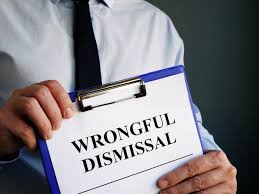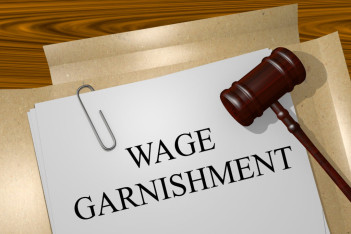Understanding Wrongful Termination: Protecting Your Rights
Employment termination can be a distressing experience, especially when it occurs without just cause. Wrongful termination refers to a situation where an employee is fired for illegal reasons, violating federal and state employment laws. This article aims to provide an in-depth understanding of wrongful termination, its legal implications, how to identify it, and the necessary steps to protect your rights and seek justice.
What Is Wrongful Termination?
Wrongful termination occurs when an employee is dismissed from their job in a manner that breaches employment laws or contracts. It differs from at-will termination, where employers may fire employees for any lawful reason. Wrongful termination can involve discrimination, retaliation, violation of public policy, breach of contract, or other unlawful motives.
Federal and state laws offer protections to employees against unfair dismissal. These statutes are designed to ensure that employees are treated fairly, and their rights are preserved in the workplace. Understanding these protections is crucial to identifying wrongful termination.
Common Grounds for Wrongful Termination
Several unlawful reasons may constitute wrongful termination. These include but are not limited to:
- Discrimination based on race, color, gender, age, religion, disability, or national origin;
- Retaliation against employees for whistleblowing, filing complaints, or participating in investigations;
- Violation of employment contracts or collective bargaining agreements;
- Termination in breach of public policy, such as firing an employee for refusing to engage in illegal activities;
- Termination due to exercising legal rights, including taking family or medical leave;
Identifying Wrongful Termination in Your Case
To determine if your termination may be wrongful, consider the circumstances surrounding your dismissal. Ask yourself the following questions:
- Were you treated differently compared to colleagues under similar situations?
- Did your employer cite reasons related to protected characteristics such as race, gender, or age?
- Were you terminated soon after making a complaint or reporting wrongdoing?
- Was your dismissal in violation of the terms outlined in your employment agreement?
- Did your employer pressure you to perform unlawful acts or withdraw your reports, and terminate you upon refusal?
If you answered yes to any of these questions, you might have grounds for a wrongful termination claim.
Collecting Evidence to Support Your Claim
Strong evidence is critical when pursuing a wrongful termination case. It provides the basis for demonstrating that your dismissal was unlawful. Important types of evidence include:
- Emails, memos, or written communications showing discriminatory or retaliatory motives;
- Performance reviews indicating satisfactory work performance;
- Witness statements from colleagues who observed discriminatory behavior or retaliation;
- Employment contracts and company policies outlining termination procedures;
- Records of complaints or reports filed with internal human resources or external agencies;
Organizing and preserving this evidence is essential for building a compelling case to present to legal authorities or courts.
Filing a Complaint: EEOC and State Labor Boards
If you believe you were wrongfully terminated, it is important to act promptly. Filing a complaint with the Equal Employment Opportunity Commission (EEOC) or your state’s labor board is often a required step before pursuing a lawsuit. These agencies investigate claims of discrimination and wrongful termination under federal and state statutes.
Each agency has deadlines for filing charges, commonly known as statutes of limitations. For example, under federal law, a charge must typically be filed within 180 days of the discriminatory act, though this period can vary based on location and situation.
When filing a complaint:
- Provide a detailed explanation of the termination circumstances;
- Submit all supporting evidence and documents;
- Cooperate fully during any investigation procedures;
- Consider mediation or settlement discussions where appropriate;
Engaging with these agencies can lead to remedies such as reinstatement, back pay, damages for emotional distress, and changes in workplace policies.
Seeking Legal Assistance
Navigating wrongful termination claims can be complex and emotionally taxing. Legal representation by experienced employment attorneys can significantly enhance your ability to secure a favorable outcome. An attorney will help you:
- Evaluate the strength of your case;
- Gather and present compelling evidence;
- Handle communications with employers and agencies;
- Negotiate settlements or represent you in court;
Expert guidance ensures your rights are protected and increases the likelihood of obtaining compensation or reinstatement.
Preventive Measures in the Workplace
Employees and employers alike benefit from understanding and preventing wrongful termination. Here are some strategies to minimize risks:
- Maintain clear documentation of performance and disciplinary actions;
- Establish transparent communication channels between staff and management;
- Conduct regular training on workplace discrimination and retaliation laws;
- Develop and enforce fair employment policies aligned with legal requirements;
Through these efforts, workplaces foster trust and reduce the likelihood of unlawful dismissals.
Understanding Federal and State Protections
Several laws provide protections against wrongful termination. Among the most significant are:
- Civil Rights Act of 1964 (Title VII): Prohibits discrimination based on race, color, religion, sex, or national origin;
- Americans with Disabilities Act (ADA): Prohibits discrimination against qualified individuals with disabilities;
- Age Discrimination in Employment Act (ADEA): Protects employees aged 40 and older from discrimination;
- Family and Medical Leave Act (FMLA): Entitles eligible employees to unpaid leave for family or medical reasons;
- Whistleblower Protection Laws: Shield employees who report illegal activities from retaliation;
States also have additional laws that may offer broader or supplemental protections. It is important to review applicable state laws for comprehensive understanding.
Steps to Take If You Believe You Were Wrongfully Terminated
Taking immediate and informed action is key to protecting your rights:
- Review any documents related to your employment and termination;
- Document your experiences, including dates, incidents, and communications;
- Consult with an employment attorney for legal advice tailored to your situation;
- File a complaint with the EEOC or relevant state agency before deadlines;
- Prepare for potential negotiations or litigation with professional legal support;
How Legal Counsel Can Secure Your Rights
An experienced attorney acts as your advocate through every stage of a wrongful termination claim. Legal counsel can help by:
- Interpreting complex employment laws;
- Gathering and analyzing evidence;
- Representing your interests in mediation or court;
- Negotiating settlements or pursuing compensation for lost wages, emotional distress, and punitive damages;
Leveraging legal expertise increases the likelihood of favorable outcomes such as reinstatement to your job or financial redress.
Communication and Support Resources
If you suspect wrongful termination, reach out for professional assistance promptly. Utilizing available resources, such as legal consultations, employee rights groups, and government agencies, can provide critical guidance.
To acquire proper legal help, you may contact our firm through the communications in bio or send a private message. Our experienced team at Legal Marketplace CONSULTANT is dedicated to protecting employee rights and providing comprehensive legal support.
Legal Marketplace CONSULTANT specializes in employment law, providing full-service assistance to individuals facing wrongful termination and workplace disputes. Our multidisciplinary team includes experienced attorneys, legal advisors, and advocates committed to defending your rights.
Wrongful termination is a serious violation of employee rights that undermines workplace fairness and legal protections. Recognizing the signs, collecting evidence, and acting swiftly by filing complaints with the EEOC or state labor boards are critical steps toward justice. Legal representation plays a vital role in ensuring fair outcomes, whether through reinstatement or compensation. If you have been unfairly dismissed, do not hesitate to seek qualified legal assistance to safeguard your rights and pursue the remedies you deserve.































